Research Group
Biodiversity Change & Citizen Science
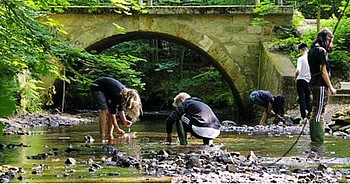
Short description
The Biodiversity Change & Citizen Science working group embraces a transdisciplinary approach and addresses biodiversity research questions together with citizens and civil society actors, natural history societies, museums and conservation agencies.
We are conducting several biodiversity citizen science projects. Next to ecological questions, we are also interested how citizen science fosters learning-by-doing, scientific literacy as well as social licence and impact for biodiversity conservation. Here, we investigate how citizen science affects environmental behaviour and well-being. Moreover, we analyse socio-political developments in the field of citizen science and have led the White Paper Citizen Science Strategy 2030 for Germany together with numerous stakeholders from research and civil society.
Biodiversity change is one of the greatest challenges facing humanity. To understand the complex patterns of this change, we rely on the availability of data which are often a heterogeneous mix of data types of varying accessibility. To address this, we compile community datasets from heterogeneous data sources on various taxa, including data from citizen science, and develop and apply statistical methods to analyze them.
Citizen Science & Participation projects
VielFalterGarten
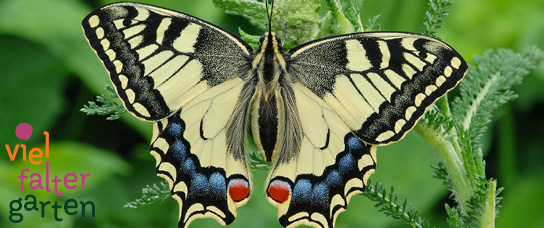
The VielFalterGarten project is committed to the protection of butterflies in the city of Leipzig. BUND Leipzig, the city of Leipzig and scientists from the UFZ and iDiv invite citizens to join in. Together we want to observe butterflies and make sure that our gardens, balconies and city parks are butterfly-friendly.
VielFalterGarten Website
VielFalterGarten - Das Projekt (Video)
VielFalterGarten - Mitmachen (Video)
FLOW
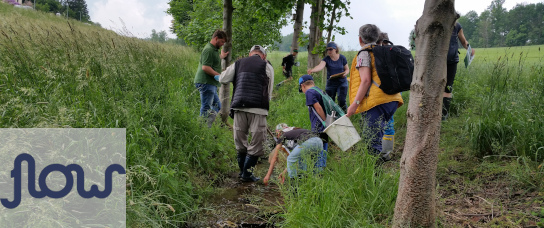
The project FLOW aims to investigate the potential of Citizen Science for ecological and ecotoxicological stream monitoring. We invite citizen groups (e.g. members of environmental organisations and anglers clubs, high school students from grades 9-12 and other interested groups) to investigate the ecological status and pesticide contamination of streams and small rivers in their vicinity.
Pflanze KlimaKultur!
We want to observe and research the influence of climate change on the seasonal development stages (phenology) of selected herbaceous plant species in as many private and public gardens as possible. In this way, we will learn how climate changes affect the growth phases of plants.
MikroSafari
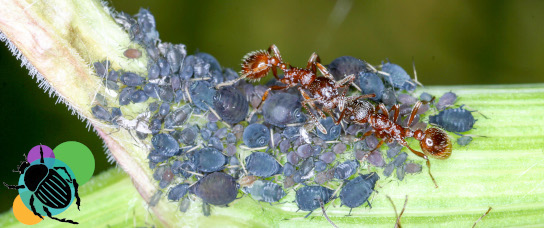
MikroSafari ist ein Citizen Science Projekt in dem WissenschaftlerInnen in Zusammenarbeit mit Kindern und Jugendlichen aus Schulen in Berlin, Halle und Leipzig neue Erkenntnisse über die Artenzusammensetzung von Insekten, inklusiv anderer Kleintiere, den Klimawandel und die Verstädterung gewinnen.
Biodiversity Change projects:
sMON - Analysing trends in German species data
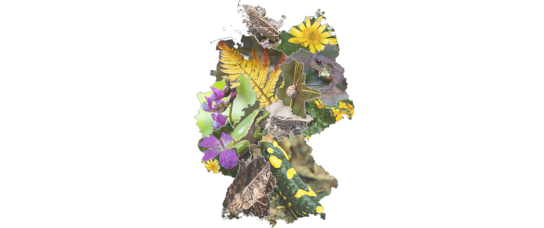
sMon is a Synthesis Project of the German Centre for Integrative Biodiversity Research (iDiv) Halle-Jena-Leipzig. We aim at combining and harmonizing exemplary datasets of different taxa and habitats and to evaluate the potentials and limits for analyzing changes in the state of biodiversity in Germany. based on these insights, we will derive perspective for future biodiversity monitoring programs in Germany.
NFDI4Biodiversity - Nationale Forschungsdateninfrastruktur für Biodiversität
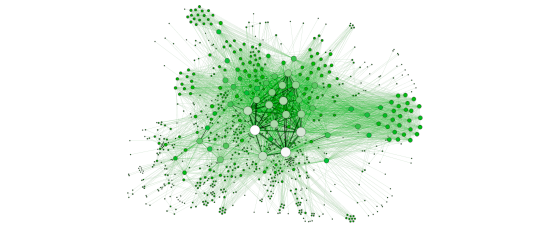
Reliable data are an important basis for better contributions to the conservation of global biodiversity. We make them accessible.
Further projects:
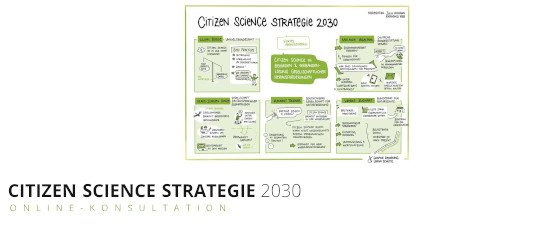
The Future of Citizen Science
On April 29, 2022, the Citizen Science Strategy 2030 for Germany was officially launched and a number of current projects were presented to the public at a Citizen Science Festival. The strategy addresses the greatest challenges and potentials of Citizen Science over the next ten years. It contains 94 concrete recommendations for action to further develop citizen science in Germany and anchor it permanently in science, society and politics. The Citizen Science Strategy 2030 Germany was developed in a two-year participatory process with more than 200 stakeholders from 136 organizations. The process was largely funded by the Deutsche Bundesstiftung Umwelt (DBU) and the Federal Ministry of Education and Research (BMBF).
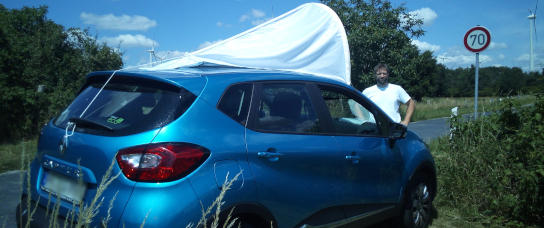
This project works with volunteers across Germany to record insects using car nets to assess the impact of land use intensity and fragmentation of insect populations. DNA-metabarcoding and automated image classification methods are developed with partners to aid insect identification. In addition, we analyse motivation in conservation-based citizen science.
- Living Atlas Germany - Feasibility Study
- EuropaBON - Europa Biodiversity Observation Network: integrating data streams to support policy.
- Coolspots! Pupils explore Leipzig's natural spaces: This project investigates the effects of citizen science as an intervention regarding learning outcomes for biodiversity with high school students.
- Israeli Butterfly Monitoring Scheme (BMS-IL)
- PhenObs: PhenObs is a global network of botanical gardens bringing together researchers, students and citizen scientists to learn more about the impacts of climate change on the phenology of herbaceous plant species.
- PolDiv - Automated high throughput pollen diversity monitoring to study the ecosystem services air quality and pollination (wind and insect pollination): This projects develops automated pollen sampling tools and applies citizen science as a tool to map pollen diversity in the surroundings of Leipzig.
- ESuDis - The main goal of ESuDis is to understand the different pathways by which anthropogenic and natural capitals are combined to sustainably co-produce ecosystem services and contribute to the equitable distribution of these services.
- INTERCEDE - Interactions of Farmland Biodiversity and Agricultural Ecosystem Services under Climate Change.
- PLANNING FOR SOCIAL-ECOLOGICAL LANDSCAPES - Enhancing inland areas through the integration of Ecosystem Services in landscape planning and territorial cohesion
- Unraveling patterns of ecosystem services supply - A case study in southern Chile
- Dr. Anders P. Tøttrup, Associate Professor, Natural History Museum of Denmark, University of Copenhagen
- Cecilie Skræp Svenningsen, Natural History Museum of Denmark, University of Copenhagen
- Prof Nicole van Dam, iDiv, Friedrich-Schiller University Jena
- Prof. Joachim Denzler, Computer Vision Group, Friedrich-Schiller University Jena
- Prof. Rob Dunn, Department of Biological Sciences, North Carolina State University
- Prof. Jens Dauber, Thuenen-Institut
- Dr. Andreas Stark, Zentralmagazin Naturwissenschaftlicher Sammlungen, Halle
Publications (selection)
- Bruelheide, H., Jansen, F., Jandt, U., Klenke, R., Grescho, V., Bonn, A., Winter, M., (2022):
Mindestanforderungen an ein Monitoring von Gefäßpflanzenarten auf den bundesweit repräsentativen Stichprobenflächen. Minimum requirements for vascular plant species monitoring on Germany's nationally representative sample plots
Nat. Landschaft 97 (6), 289 - 299
full text (doi) - Bowler, D.E., Bhandari, N., Repke, L., Beuthner, C., Callaghan, C.T., Eichenberg, D., Henle, K., Klenke, R., Richter, A., Jansen, F., Bruelheide, H., Bonn, A., (2022):
Decision-making of citizen scientists when recording species observations
Sci. Rep. 12 , art. 11069
full text (doi) - Bowler, D.E., Callaghan, C.T., Bhandari, N., Henle, K., Barth, M.B., Koppitz, C., Klenke, R., Winter, M., Jansen, F., Bruelheide, H., Bonn, A., (2022):
Temporal trends in the spatial bias of species occurrence records
Ecography 2022 (8), e06219
full text (doi) - Bowler, D., Eichenberg, D., Conze, K.-J., Suhling, F., Baumann, K., Benken, T., Bönsel, A., Bittner, T., Drews, A., Günther, A., Isaac, N., Petzold, F., Seyring, M., Sprengler, T., Trockur, B., Vedder, D., Willigalla, C., Bruelheide, H., Jansen, F., Bonn, A., (2022):
Gewinner und Verlierer in der Libellenfauna: Veränderung der Verbreitung in Deutschland zwischen 1980 und 2016
Libellula 44 (1/2), 25 - 45 - Bruelheide, H., Jansen, F., Jandt, U., Bernhardt-Römermann, M., Bonn, A., Bowler, D., Dengler, J., Eichenberg, D., Grescho, V., Kellner, S., Klenke, R.A., Lütt, S., Lüttgert, L., Sabatini, F.M., Wesche, K., (2021):
A checklist for using Beals’ index with incomplete floristic monitoring data. Reply to Christensen et al. (2021): Problems in using Beals’ index to detect species trends in incomplete floristic monitoring data
Divers. Distrib. 27 (7), 1328 - 1333
full text (doi) - Eichenberg, D., Bowler, D.E., Bonn, A., Bruelheide, H., Grescho, V., Harter, D., Jandt, U., May, R., Winter, M., Jansen, F., (2021):
Widespread decline in Central European plant diversity across six decades
Glob. Change Biol. 27 (5), 1097 - 1110
full text (doi) - Bruelheide, H., Jansen, F., Jandt, U., Bernhard-Römermann, M., Bonn, A., Bowler, D., Dengler, J., Eichenberg, D., Grescho, V., Harter, D., Jugelt, M., Kellner, S., Ludwig, M., Wesche, K. & Lütt, S. (in review) Using incomplete floristic monitoring data from habitat mapping programmes to detect species trends.
- Eichenberg, D., Bowler, D., Bruelheide, H., Jansen, F., Jandt, U., Bernhard-Römermann, M., Dengler, J., Harter, D., Henle, K., Hofmann, S., Isaac, N.J., Kamp, J., König-Ries, B., Kraemer, R., Ludwig, M., Lueg, H., Ronnenberg, K., Schiffers, K.H., Schulte, U., Sperle, J., Stab, S., Wirth, C. & Bonn, A. (in review) Langfristige Biodiversitätsveränderungen in Deutschland erkennen - Mit Hilfe der Vergangenheit in die Zukunft schauen.
- Eisenhauer, N., Bonn, A. & Guerra, C.A. (2019) Recognizing the quiet extinction of invertebrates. Nature communications, 10, 50.
Jansen F., Bonn A., Bowler D.E., Bruelheide H., Eichenberg, D. (2019): Moderately common plants show highest relative losses. Conservation Letters: doi: 10.1111/conl.12674 - Kelling, S., Johnston, A., Bonn, A., Ruiz-Gutierrez, V., Bonney, R., Fink, D., Julliard, R., Hochachka, W.M., Fernandez, M., Kraemer, R. & Guralnick, R. (2019) Using Semi-Structured Surveys to Improve Citizen Science Data for Monitoring Biodiversity. Bioscience, 69, 170-179.
- Kühl, H.S., Bowler, D., Bruelheide, H., Eichenberg, D., Eisenhauer, N., Guerra, C., Henle, K., Isaac, N.J.B., Jansen, F., König-Ries, B., Pe’er, G., Richter, A., Voigt, M., Wirth, C. & Bonn, A. (in prep) Effective biodiversity monitoring needs integration.
- Bonn, A., Hecker, S., Bowser, A., Makuch, Z., Vogel, J. & Haklay, M. (2018) Citizen science to foster innovation in open science, society and policy. In: Hecker, S. et al. (eds.), Citizen Science – Innovation in Open Science, Society and Policy. UCL Press, London, 465-484.
- Bonn, A., A. Richter, K. Vohland, L. Pettibone, M. Brandt, R. Feldmann, C. Goebel, C. Grefe, S. Hecker, L. Hennen, H. Hofer, S. Kiefer, S. Klotz, T. Kluttig, J. Krause, K. Küsel, C. Liedtke, A. Mahla, V. Neumeier, M. Premke-Kraus, M. C. Rillig, O. Röller, L. Schäffler, B. Schmalzbauer, U. Schneidewind, A. Schumann, J. Settele, K. Tochtermann, K. Tockner, J. Vogel, W. Volkmann, H. von Unger, D. Walther, M. Weisskopf, C. Wirth, T. Witt, D. Wolst & D. Ziegler (2016) Greenpaper Citizen Science Strategy 2020 for Germany. Leipzig & Berlin.
- Hecker, S., Wicke, N., Haklay, M. & Bonn, A. (in press). How Does Policy Conceptualise Citizen Science? A Qualitative Content Analysis of International
- Hecker, S. & Wicke, N. (2019), Roles of actors in citizen science in international policy documents. In: Bartoschek T, Nüst D and Pesch M (eds) Forum Citizen Science 2019 - Die Zukunft der Bürgerforschung. Münster, 1-10. DOI: 10.17605/OSF.IO/68UWN.
- Hecker S., Garbe L., Bonn A. (2018) The European citizen science landscape – a snapshot. In: Hecker, S. et al. (eds.), Citizen Science – Innovation in Open Science, Society and Policy. UCL Press, London, 190-200.
- Hecker, S., R. Bonney, M. Haklay, F. Hölker, H. Hofer, C. Goebel, M. Gold, Z. Makuch, M. Ponti, A. Richter, L. Robinson, J. R. Iglesias, R. Owen, T. Peltola, A. Sforzi, J. Shirk, J. Vogel, K. Vohland, T. Witt & A. Bonn (2018) Innovation in Citizen Science – Perspectives on Science-Policy Advances. Citizen Science: Theory and Practice 3(1).
- Hecker, S., Haklay, M., Bowser, A., Makuch, Z., Vogel, J. & Bonn, A. (2018) Citizen Science – Innovation in Open Science, Society and Policy. UCL Press, London.
- Hecker S., Haklay M., Bowser A., Makuch Z., Vogel J., Bonn A. (2018) Innovation in Open Science, Society and Policy – Setting the Agenda for Citizen Science. In: Hecker, S. et al. (eds.), Citizen Science – Innovation in Open Science, Society and Policy. UCL Press, London, 1-24.
- Kelly, R., Fleming, A., Pecl, G., Richter, A. & Bonn, A. (2019) Social licence through citizen science: A tool for marine conservation. Ecology & Society, 14, 16.
- Richter, A. (2019) Digitale Medien und Techniken im ehrenamtlichen Naturschutz. Natur und Landschaft, 94, 103-111.
- Richter, A., D. Dörler, D., Hecker, S., Heigl, F., Pettibone, L., Serrano Sanz, F., Vohland, K., & Bonn, A. (2018) Capacity building in citizen science. In: Hecker, S. et al. (eds.), Citizen Science – Innovation in Open Science, Society and Policy. UCL Press, London, 269-283.
- Richter, A., Hauck, J., Feldmann, R., Kühn, E., Harpke, A., Hirneisen, N., Mahla, A., Settele, J. & Bonn, A. (2018) The social fabric of citizen science—drivers for long-term engagement in the German butterfly monitoring scheme. Journal of Insect Conservation, 22, 731–743.
- Richter, A., Singer-Brodowski, M., Hecker, S., Trénel, M., Letz, B. & Bonn, A. (2018) Positionspapier: Handlungsbedarfe und Maßnahmen für die Förderung von Citizen Science in der Umweltbildung und Umweltkommunikation. UFZ-Diskussionspapiere 2/2018. Helmholtz-Zentrum für Umweltforschung. Leipzig.
- Richter, A., Siebert, A., Hecker, S., et al (in press) Storytelling for narrative approaches in citizen science: towards a generalized model. Science Communication.
- Turrini, T., Dörler, D., Richter, A., Heigl, F. & Bonn, A. (2018) The threefold potential of environmental citizen science - Generating knowledge, creating learning opportunities and enabling civic participation. Biological Conservation, 225, 176-186.
